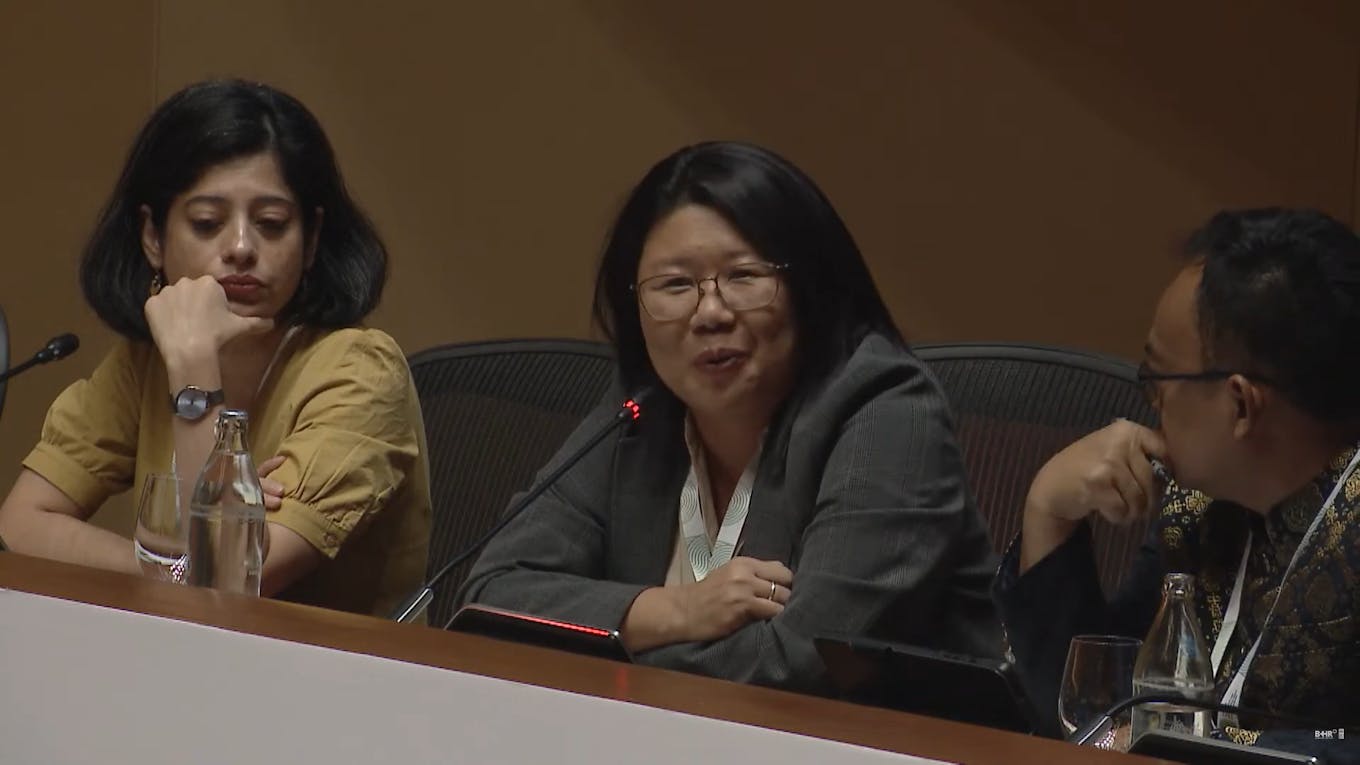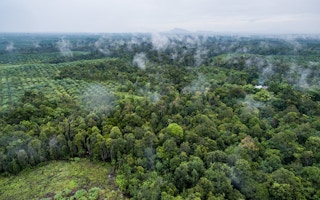Voluntary reporting on biodiversity impacts and risks will not work in Asia and governments should set stronger harmonised rules to better protect nature, said a conservation executive from one of Asia’s largest agribusiness groups, Wilmar International.
To continue reading, subscribe to Eco‑Business.
There's something for everyone. We offer a range of subscription plans.
- Access our stories and receive our Insights Weekly newsletter with the free EB Member plan.
- Unlock unlimited access to our content and archive with EB Circle.
- Publish your content with EB Premium.
Chin Sing Yun, Wilmar’s conservation programme leader, urged policymakers to make “high conservation value” (HCV) and “high carbon stock” (HCS) assessments compulsory for all new developments.
These are policies Wilmar already internally abide by, in its “no deforestation, no peat, no exploitation” pledge made in 2013, after facing allegations of causing severe transboundary haze.
HCV studies typically look into how areas of high or rare biodiversity within development plots can be better protected, while HCS assessments seek to identify natural forest areas against degraded land.

Chin Sing Yun (centre), conservation programme leader at Wilmar Inernational, speaking at the Corporate Sustainability and Environmental Rights in Asia (CSERA) conference in Thailand. Image: YouTube/ UNDP Business and Human Rights.
These assessments should also be part of financing considerations, said Chin, who oversees nature protection efforts at one of the world’s biggest oil palm plantation owners. She was speaking at a corporate sustainability conference in Bangkok, Thailand on Wednesday.
Chin’s comments come amid growing efforts worldwide to halt biodiversity loss and avoid collateral damage from ecosystem collapse. Governments worldwide last year pledged to conserve 30 per cent of the world by 2030, though many think the target is a stretch without a drastic increase in funding.
On the corporate front, multiple frameworks for voluntary nature-related disclosures have been proposed, though few firms have been getting on board.
Within Asia Pacific – both a tropical biodiversity haven and deforestation hotspot – only a quarter of the largest listed companies see managing biodiversity as a priority, a study by the National University of Singapore last year found. The overall nature disclosure rate hovers at just above 30 per cent.
Last month, the Taskforce on Nature-related Financial Disclosures (TNFD) released widely anticipated guidelines on biodiversity reporting. Corporate giants such as British drugmaker GSK have committed to start using the framework.
But relying on such voluntary reporting will not work in Asia, Chin said, noting that even TNFD’s guidance comes some two decades after a landmark “Millennium Ecosystem Assessment” was conducted by the United Nations and boosted global efforts on nature conservation.
Although deforestation rates have slowed down in major Southeast Asian countries such as Indonesia and Malaysia, illegal logging and development continues to bog conservation efforts.
Chin said a “top-down” way of setting standardised rules across business sectors will help reduce “compliance complexity” for firms and prevent “leakage”, or deforestation shifting to less regulated areas.
“Mandatory reporting will make our jobs much easier,” Chin added.
As it stands, within the G20 group of major economies, only Brazil, the European Union (EU) and Indonesia have some form of requirements for companies to report on biodiversity-related data, nonprofit CDP said in a report last month.
Some believe more biodiversity reporting obligations are already on the horizon.
Pallavi Kavita, advocacy and Asia lead for advocacy group Business for Nature, noted that apart from conserving 30 per cent of the world by 2030, the global biodiversity pact governments signed last year also requires large firms to disclose biodiversity risks and impacts across their value chains.
“As the [disclosure] target gets implemented at the national level, we will see more regulations coming into place, which means large companies, including those in Asia, with global operations and supply chains, will have to start preparing now to meet those regulatory changes,” Kavita said.
She added that the EU’s new mandatory disclosure rules, under its “Corporate Sustainability Reporting Directive”, will also oblige Asian firms with European ties to provide information starting 2025.
But there are also reservations on how onerous reporting obligations might get. Data collection and analysis are key challenges for Wilmar, as a large multinational company with complex supply chains, Chin said.
Meanwhile, Joseph D’Cruz, chief executive of nonprofit Roundtable on Sustainable Palm Oil, pointed at the EU’s new deforestation regulation as an example of how reporting requirements could disadvantage smaller farmers.
The regulation, coming into force end-2024, requires importers to provide geolocation data for their production area. Smallholders – who overall represent 40 per cent of global oil palm production – have said they would have trouble producing such information.
“You’re announcing to farmers on the ground, who have demonstrated effort to produce [palm oil] sustainability, that because we have framed our paperwork requirements in this way, you are no longer able to sell to one of the world’s most important markets,” D’Cruz said.
While it is acceptable to tell large companies to do more, the conservation burden should be lifted from individual smallholders, through funding and tie-ups with governments and larger businesses, D’Cruz added.

















